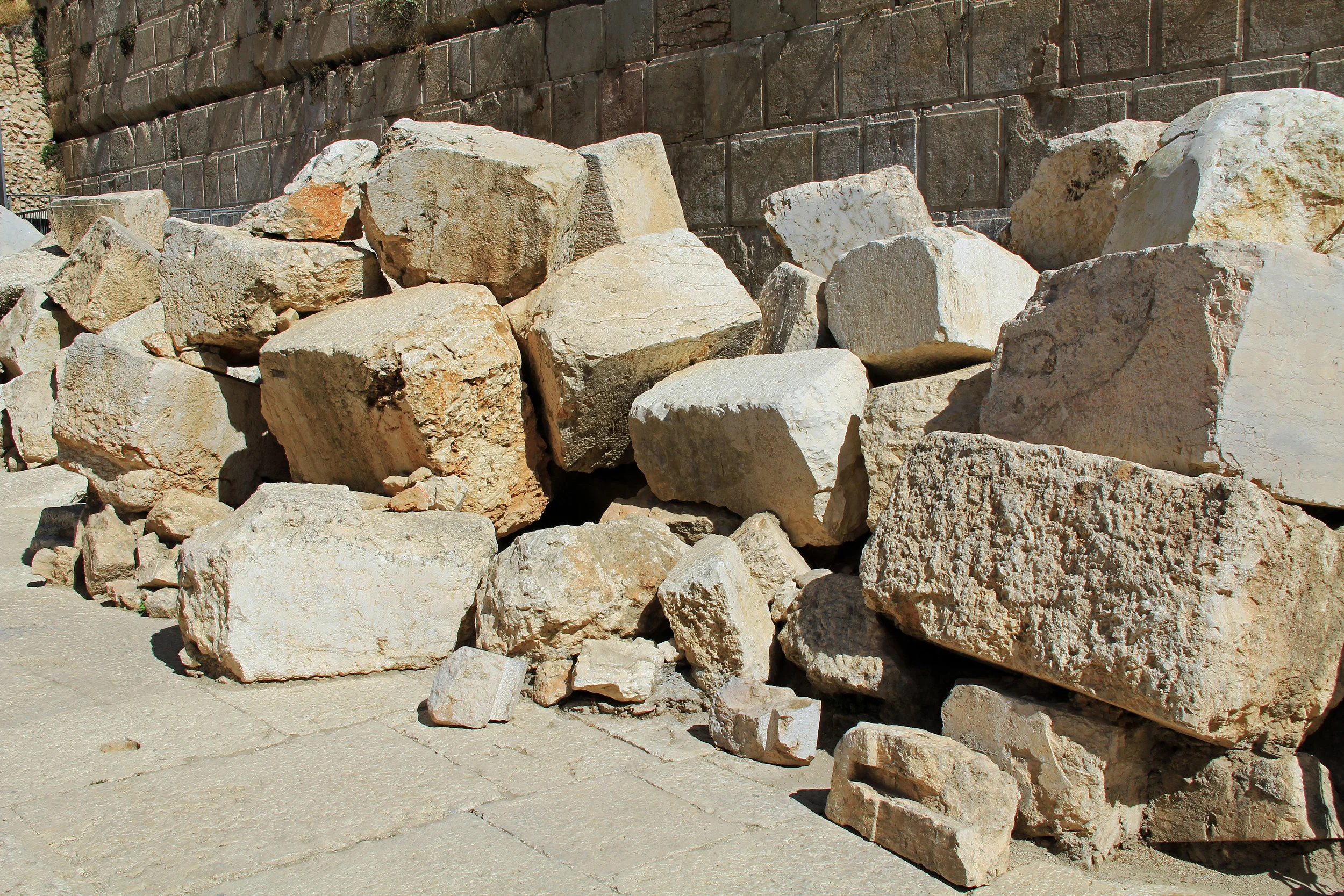Pentecost 26B2018
Mark 13:1-8
By Pastor Sarah Stadler
Look, Teacher, what large stones and what large buildings! Says a disciple to Jesus.
They were coming out of the temple in Jerusalem. For Jews in the first century, Jesus among them, the temple and its trappings brought order and structure to their lives. The temple, its priests and traditions named and forgave sin, limited people’s food choices, defined appropriate relationships, determined a person’s cleanliness following ritual contamination, and identified a person as included—or not—among the chosen people. Different parts of the temple provided hospitality to different people. In the outermost part, the Court of the Gentiles welcomed all people, including non-Jews. Closer in, the Court of Women received Jewish women. Further in, the Court of Men Jewish men. Then finally the temple proper allowed only the priests. Into the holiest of holies, the very center of the temple structure, only the high priest could enter. For the Jewish people of the first century, the temple clearly defined the place of various groups. Herod the Great began temple construction in the year 19 BCE, and construction continued through the year 63 CE. Such an important place in ancient Jewish culture, the temple was worthy of its 82 years of construction. Today, Jesus’ disciple stands in awe of its splendor. This institution defined the very structure of ancient Jewish life. This religion and its trappings were unquestioned among those who worshiped Yahweh.
Exiting this magnificent temple and all it represented, Jesus responds to his disciple: Do you see these great buildings? Not one stone will be left here upon another. All will be thrown down.
It may be difficult for us to understand the disturbing nature of Jesus’ words. Here at Grace, we don’t get too tied up in knots when change happens, for which I am grateful, but were Jesus to propose a change in our spiritual lives even somewhat comparable to the destruction of the temple, I’m not sure how we would respond. A comparable statement might be: We will no longer ordain pastors; all aspects of church life will be led by lay people. A comparable statement might be: No congregation will meet in or own a church building; we will instead meet for worship only in people’s homes. Or even: The Lutheran Church will no longer exist, just the Christian Church. The change of which Jesus speaks in the gospel of Mark rocks the spiritual world of his disciples just as those hypothetical changes might rock our spiritual worlds. If the temple—or the role of pastor or church buildings or Lutheranism—are destroyed, what does that mean about God? About God’s power or lack thereof? About us as a people? Did we fail? Did God fail?
“For us, when the things that bring order to our lives are threatened, when the things that we consider unquestionable are questioned, when our very foundation is shaken, what do we do?”
The temple was, in fact, destroyed in the Roman-Judean war—in 70 CE, just 7 years after its construction was completed and right around the time that the Gospel of Mark was composed. Coincidence? Probably not. For the early Christians, some of whom came from a Jewish background, the destruction of the temple during the war disturbed them, and Mark the gospel writer recounts words of Jesus to bring hope to the people. Even if the temple is destroyed, even if earthquakes and famines ravage us, even if nation rises against nation, do not be alarmed, Jesus says. This isn’t the end—not the end of Judaism, not the end of Christianity, not the end of the world; actually, it’s just the beginning of the birth pangs, just the beginning of something new.
It’s not just the temple Jesus brings into question but the safety and security and foundation of people’s lives. For us, when the things that bring order to our lives are threatened, when the things that we consider unquestionable are questioned, when our very foundation is shaken, what do we do? How do we make sense of that?
Those moments for me include the day a friend of mine told me he didn’t think God existed. I was 18, and his admission shook me to the core.
Perhaps for you the moment was when you or someone close to you was diagnosed with cancer or HIV or when you found yourself in a life-altering accident. Or maybe it was the day you became a parent and found your values and use of time and perspective all magically shifted. Usually the moments that alter our worlds feel threatening and actually are threatening to those previous ways of life. These moments change our lives, and we don’t go back. But just because they change us or challenge us doesn’t mean they’re all bad.
At 18, I felt my world come crashing down because my dear friend told me he didn’t think God existed. What actually came crashing down was my simple, unquestioning faith, and what sprung up was a relentlessly questioning faith. Now, I am only grateful.
Whatever is dying in our lives and the life of the world, that death is but a path to new life. It doesn’t mean the death will be easy or comfortable—it probably won’t be. But because of the new life that springs up in its wake, we need not be alarmed as Jesus says. Whether the temple is destroyed or our lives are rearranged, God will bring to birth something new. And because of that, we can say in every circumstance:

